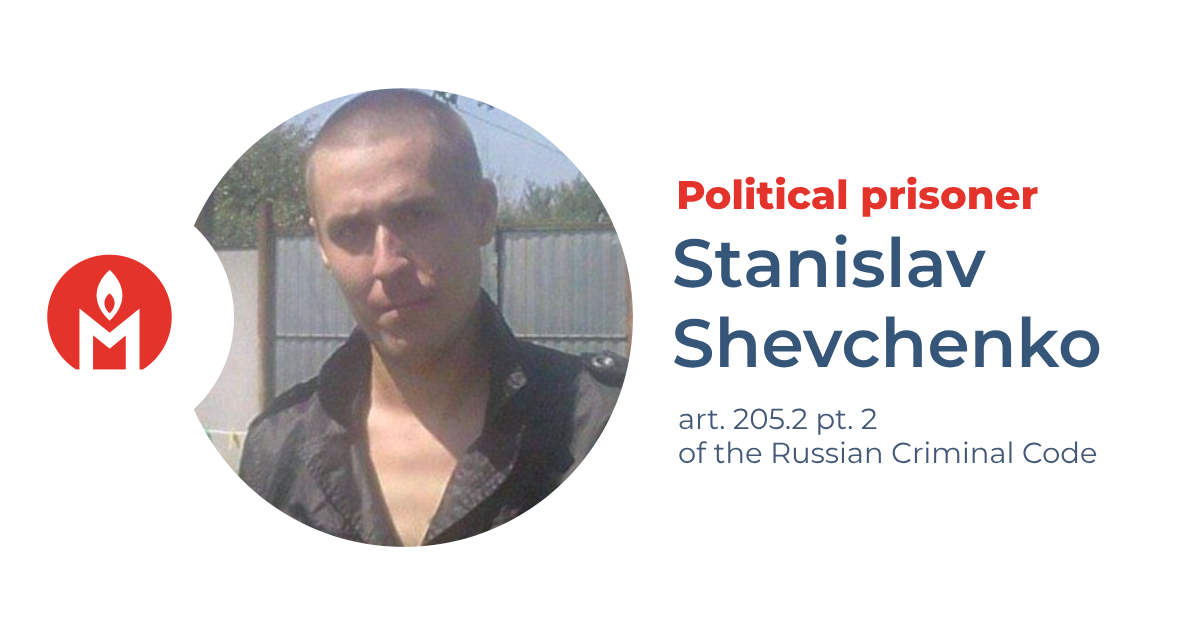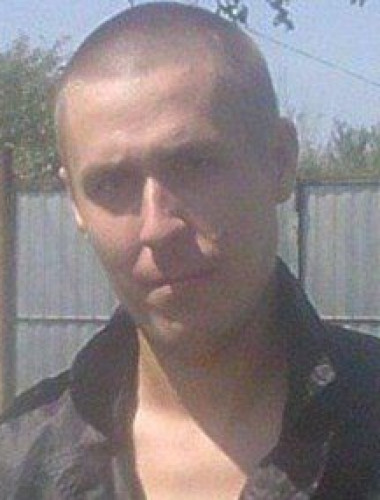Stanislav Shevchenko is a political prisoner
A resident of Adygea has been sentenced to four years in a penal colony for ‘justifying terrorism’ online
The ‘Political Prisoners. Memorial’ human rights project, in accordance with international standards, considers Stanislav Shevchenko a political prisoner. Stanislav Shevchenko was convicted of justifying terrorism for statements he made online. Shevchenko’s prosecution and conviction violated his rights to freedom of speech and a fair trial. We demand the immediate release of Stanislav Shevchenko and that all criminal charges against him be dropped.

What were the charges against Stanislav Shevchenko?
According to the prosecution, in 2022–2023 Stanislav Shevchenko, who comes from Maikop, posted statements online justifying the explosion on the Crimean Bridge and the arson of the FSB building in Krasnodar committed by Igor Paskar. Most likely, Shevchenko was detained and remanded in custody in the spring of 2023.
On 19 September 2024, a court in Rostov-on-Don sentenced Stanislav Shevchenko to four years in a general regime penal colony.
Why do we consider Stanislav Shevchenko a political prisoner?
We do not know for which specific statements Shevchenko was charged. However, based on the topics with which the charges are concerned, we believe Shevchenko’s statements cannot be classified as justification of terrorism.
The attack on the Crimean Bridge was not an act of terrorism. Responsibility for the attack was claimed by the Ukrainian authorities, who are resisting Russian aggression. The bridge, which connects occupied Crimea to Russia, has a dual civilian and military purpose and hence may be considered a legitimate target in the armed conflict. Therefore, the attack on the bridge was not a crime but an episode of combat operations.
Statements about the actions of Igor Paskar, who in 2022 threw a Molotov cocktail at the door of the FSB office in Krasnodar Krai, cannot be considered as justifying terrorism either. Paskar’s actions were not intended to intimidate the public, which is an essential characteristic of terrorism. In setting fire to the door of the FSB building, Paskar was protesting against Russia’s war of aggression against Ukraine. Our project has recognised Igor Paskar as a political prisoner.
Moreover, even if Shevchenko’s statements were deemed to pose a potential threat to society, such a threat would be minimal. The imposition of a four-year prison sentence was a disproportionately harsh punishment and was based on his anti-war stance.
A detailed description of Stanislav Shevchenko’s case and of our position is available on our website.
Recognition of an individual as a political prisoner does not imply the ‘Political Prisoners. Memorial’ human rights project agrees with, or approves, their views, statements, or actions.
How can you help?
You can write to Stanislav Shevchenko at the following address:
In Russian:
344022, Ростов-на-Дону, ул. Максима Горького, д. 219, ФКУ СИЗО-1 ГУФСИН России по Ростовской области, Шевченко Станиславу Николаевичу 1985 г. р.
In English:
Stanislav Nikolaevich Shevchenko (born 1985), Remand Prison No. 1, Federal Penitentiary Service of Russia for Rostov Oblast, 219 Maksima Gorkogo Street, Rostov-on-Don, 344022, Russia.
You can also send emails via ZT (for payment with Russian bank cards), OVD-Info and Memorial-France (free of charge).
Please note that letters in languages other than Russian are highly unlikely to reach the recipient.
You can donate to help all political prisoners in Russia.
